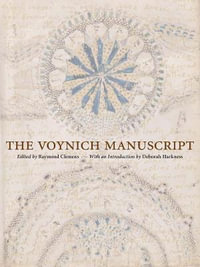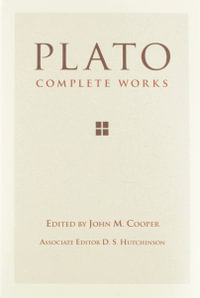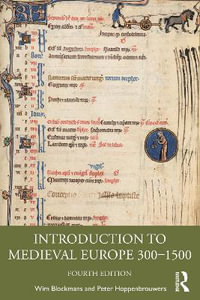Virgil''s Georgics, by common consent one of the greatest poems in western literature, purports to be a didactic poem on agriculture, but its true subject is man and his place in literature and society. It is also a landmark in the use of the natural world as material for literature, and in the history of man''s attitude towards his environment. The object of this commentary is to present the poet''s meaning and (as far as possible) his choice of expression in the hope of achieving fuller understanding and enjoyment of the poetry. The volume includes the late Sir Roger''s Oxford Classical Text of the Georgics together with apparatus criticus, as well as an appendix of Greek sources. After Mynors''s death (in 1989) R. G. M. Nisbet added a short Preface to the Commentary and compiled an index.
Industry Reviews
`We are in the hands of a commentator who is doing his job ... No commentator is better on the ancient sources, both poetic and agricultural. We have been waiting for this book for a quarter of a century. ... in this great and glowing commentary he has given us a sunlit view of one of the richest poems ever written.'
David West, The Times Saturday Review
'in this great and glowing commentary he has given us a sunlit view of one of the richest poems ever written'
David West, The Times
RELATED OUP TITLES: Virgil edited by R. A. B. Mynors (Oxford Classical Text, 1969); Virgil's Eclogues and Georgics translated by C. Day Lewis with an introduction and notes by R. O. A. M. Lyne (both now OPBs, 1983).
'a mine of information about the different soils of Italy, the skills of grafting, the rhetorical armoury of Roman poets and much else besides ... The detailed notes help us to understand the nature of a classic.'
Gabriel Josipovici, The Independent
'a commentary in which the editor has become free to devote himself to the 'explication du texte', and who could serve the reader better in this department of scholarship than the author of the most recent Oxford text? ... Reference to passages that have received widely differing interpretations shows not only the scholarship of this eminent assessor of manuscript authority, but a combination of judgement and affection for his author, enabling him not only
to stimulate the reader, inviting him to probe more deeply and to 'experience; the artistry of this subtle poet, but also to take account of the 'failings'. M.'s meticulous care has been matched by his
publishers. The weighty volume, totalling nearly 450 pages, is easy to handle.'
K.D. White, The Classical Review, Vol. XLII, 1992
'R.A.B. Mynors' long-awaited commentary on Vergil's Georgics will be an important reference for this complex poem. The commentary itself is invaluable ... it will serve as a rich supplement to those texts which will be employed in teaching the Georgics.'
Patricia A. Johnston, Brandeis University, The Classical Outlook/Fall 1992
'it will be a wonderful addition to the reserve shelf ... It is a model of what I think a commentary should be. Mynors has no axe to grind, no hobbyhorse to ride ... he writes with wit and charm ... It is packed with useful information and would be worth buying for that alone, but it is much more than a compendium of facts ... Mynors, like Vergil, can make even a very prosaic topic come alive ... his commentary is a good starting point.'
Sara Mack, University of North Carolina, Chapel Hill, American Journal of Philology, Volume 114, Issue 2, June 1993
'a magnum opus ... there are some very illuminating passages from the drafts extant, and here we are in the realm of that fine writing which one encounters in the early addresses ... to the Virgil Society ... It is clearly a milestone in Virgilian scholarship, one which will abide for generations to come. The volume is a handsome one, a pleasure to use.'
Jonathan Foster, University of Liverpool, Proceedings of the Virgil Society 21 (1993)
'This is a gem of a commentary, in which immense learning, lightly borne, is paired with wit and brevity. Everywhere there are surprises ... Most pages offer examples of the delightful wit, never malicious, that characterized Mynors as a person, and it makes this commentary a joy to read ... the best and most enjoyable commentary by far that has ever been written on Virgil's most perfect poem.'
Gordon Williams, Yale University
'The quality of production ... Mynors' Georgics is obviously a landmark in Vergilian studies. Every library and every Latin scholar should own this book.'
Richard F. Moorton, Jr. Connecticut College, Classical World
`M.'s information on ancient views of bee-keeping, on modern bee-keeping, on bougonia ( and the sources of the aristacus, Eurydicem, Orpheus story), is magnificent, and apiaristically (at least) he outstrips all the rival c9ommentaries...this is an invaluable commentary in te respects in which one would expect M. to excel...now we have this repository of facts. And it has spledid indexes.'
Journal of Roman Studies LXXXIII,1993


























